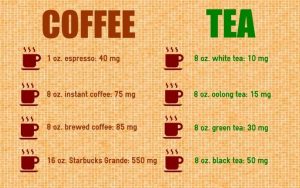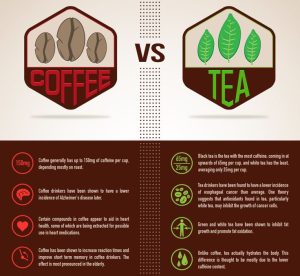How Much Caffeine in Green Tea: What is Caffeine?
How Much Caffeine in Green Tea
Sipping green tea is a popular way to unwind, but did you know it also has a bit of a caffeine kick? While many enjoy green tea for its calming effect, there is a small amount of caffeine present. Let’s delve into how much caffeine you can expect to find in a cup of green tea, comparing it to other beverages to give you a better idea. In this article, we’ll delve into the caffeine content of green tea, its benefits, and other related aspects.
Before diving into the specifics of caffeine content, let’s understand what green tea is and its association with caffeine. Green tea is made from the leaves of the Camellia sinensis plant, just like black tea and oolong tea. However, what sets green tea apart is its minimal processing, which helps retain its natural compounds and antioxidants.
https://www.youtube.com/watch?v=ghXVxYjIaGM&pp=ygUeaG93IG11Y2ggY2FmZmVpbmUgaW4gZ3JlZW4gdGVh
What is Caffeine?
Caffeine is a natural compound found in various plants, including coffee beans, cacao pods, and tea leaves. It is known for its stimulating effects on the central nervous system, helping to increase alertness and reduce fatigue. In green tea, caffeine is present alongside other beneficial compounds, contributing to its overall health effects. Also, read about What is Boba Tea
Benefits of Green Tea
Green tea is celebrated for its numerous health benefits, thanks to its rich antioxidant content and other bioactive compounds. Some of the notable benefits include:
Antioxidant Properties
Green tea is packed with antioxidants, such as catechins and flavonoids, which help combat oxidative stress and reduce the risk of chronic diseases.
Weight Loss Aid
Studies suggest that the catechins in green tea may boost metabolism and promote fat burning, making it a popular choice for those looking to manage their weight.
Improved Brain Function
The combination of caffeine and amino acid L-theanine in green tea may have synergistic effects on brain function, enhancing mood, memory, and cognitive performance.
How much Caffeine is in Green Tea?
The caffeine content of green tea can vary depending on several factors, including the type of tea, brewing method, and serving size. On average, an 8-ounce (240-milliliter) cup of green tea contains approximately 20-45 milligrams of caffeine. However, these values can fluctuate significantly.

Factors Affecting Caffeine Content
The caffeine content in green tea is influenced by factors such as:
- Type of tea leaves: Young tea leaves tend to have higher caffeine levels than older leaves.
- Brewing time and temperature: Longer brewing times and higher water temperatures can extract more caffeine from the tea leaves.
- Tea variety: Different varieties of green tea may have varying caffeine concentrations.
Caffeine Content Comparison with Other Beverages
Compared to other beverages like coffee and black tea, green tea generally contains less caffeine. For instance, an 8-ounce cup of brewed coffee typically contains around 95 milligrams of caffeine, while the same amount of black tea contains approximately 30-70 milligrams. For more interesting information visit our website networldfusion.com
Does Green Tea have Less Caffeine than Coffee?
Yes, green tea typically contains less caffeine than coffee. While both beverages contain caffeine, the concentration in green tea is lower, making it a milder option for those sensitive to caffeine or seeking a gentler energy boost.
How Caffeine Affects the Body
Caffeine works by blocking the action of adenosine, a neurotransmitter that promotes relaxation and sleepiness. Instead, caffeine increases the activity of neurotransmitters like dopamine and norepinephrine, leading to heightened alertness and improved focus.
Recommended Caffeine Intake
The recommended daily intake of caffeine varies depending on individual factors such as age, weight, and tolerance levels. In general, moderate caffeine consumption is considered safe for most adults, with daily limits set around 400 milligrams.
Side Effects of Caffeine Consumption
While caffeine can offer several benefits, excessive consumption may lead to side effects such as:
- Insomnia
- Nervousness
- Increased heart rate
- Digestive issues
- Headaches
Is Caffeine Addictive?
Caffeine is mildly addictive, as regular consumption can lead to physical dependence and withdrawal symptoms upon cessation. However, the addictive potential of caffeine is relatively low compared to substances like nicotine or opioids.
How to Reduce Caffeine Intake
For those looking to reduce their caffeine intake, there are several strategies to consider:
- Opt for decaffeinated green tea or other herbal teas.
- Gradually decrease caffeine consumption to minimize withdrawal symptoms.
- Choose lighter or shorter brewing methods to reduce caffeine extraction.

Different Types of Green Tea and their Caffeine Content
Various types of green tea are available, each with its unique flavor profile and caffeine content. Some popular varieties include:
- Sencha: A common Japanese green tea with moderate caffeine levels.
- Matcha: A finely ground green tea powder known for its intense flavor and higher caffeine content.
- Dragon Well (Longjing): A Chinese green tea with a smooth, slightly sweet taste and moderate caffeine levels.
Conclusion
In conclusion, green tea offers a refreshing and healthful beverage option with moderate caffeine content. Its numerous benefits, coupled with its lower caffeine levels compared to coffee, make it a popular choice among tea enthusiasts. Understanding the factors influencing caffeine content and its effects on the body can help individuals make informed choices about their tea consumption.
FAQs
Does green tea contain more caffeine than black tea?
No, black tea generally contains more caffeine than green tea.
Can green tea help with weight loss?
Yes, the catechins in green tea may boost metabolism and aid in weight loss when combined with a healthy diet and exercise.
Is it safe to drink green tea before bed?
While green tea contains less caffeine than coffee, it’s advisable to avoid consuming it too close to bedtime to prevent disruptions in sleep.
Are there any adverse effects of consuming too much caffeine?
Excessive caffeine intake can lead to side effects such as insomnia, jitteriness, and increased heart rate.
How does caffeine affect hydration levels?
While caffeine has diuretic properties, moderate consumption through beverages like green tea is unlikely to cause significant dehydration.
